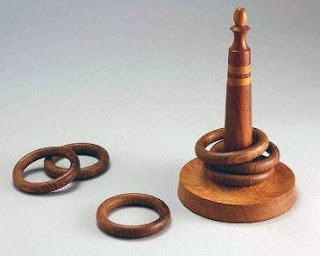David had dismounted to fight, and his location on the battlefield had become unclear. He had taken two arrows to his face, and attempted to hide from the enemy. Contemporary accounts state that he hid under a bridge over the River Browney. A group of English soldiers near the bridge saw him reflected in the water of the river and moved to capture him. He fought back and knocked out two teeth of John de Coupland, who took him prisoner.
David was held prisoner from 1346 to 1357. First he was brought to Bamburgh Castle, where surgeons tried to remove the arrows. The tip of one could not be removed and was the cause of headaches for the rest of his life. (John Bradmore would have been useful here, but he was still a child. He was then taken to London and put in the Tower. When Edward III returned from France, David was transferred to Windsor Castle. Finally, David and his household were put in Odiham Castle (its ruins are pictured above). Captivity for a king was generally comfortable, but in 1355 he was forbidden any contact with his family, which may have accelerated negotiations for his ransom (Edward was always looking for more money for his wars).
On 3 October 1357, a treaty was signed that gave 10,000 marks each year for ten years as ransom. He returned to Scotland with an English mistress, Katherine Mortimer. (David had married Edward III's sister, Joan of the Tower, in 1328 when she was seven and he was four. They had no children. She died in 1362.) Mortimer was killed in 1360 by men hired by the Earl of Angus. David had another mistress, Margaret Drummond, whom he married in 1364. (Then he took another mistress, Agnes Dunbar.)
This ransom plan worked for a few years, but the Scottish nobles could not raise 10,000 marks in 1363, and David went to London to try to re-negotiate a settlement. He offered to leave Scotland to Edward or one of his many sons in David's will. In 1364 Scotland's Parliament rejected a proposal for Edward's son Lionel of Antwerp to become the next king. David kept talking to Edward, prolonging the consequences of non-payment (which would mean going back into captivity).
David died on 22 February 1371, aged 46. He was buried quickly in the nearest likely place, in Holyrood Abbey. He wished to be buried near his parents in Dunfermline, but his successor, Robert II, wanted to "conclude" David's reign as quickly as possible to begin his own.
Now, the transition above between paragraphs two and three was hardly a transition at all: it would appear that from his capture to his captivity just "happened" in a flash. It wasn't that easy, and John de Coupland almost got in trouble for it. When the dust settled, however, de Coupland made out extremely well. I'll explain his almost fall but steady rise tomorrow.










